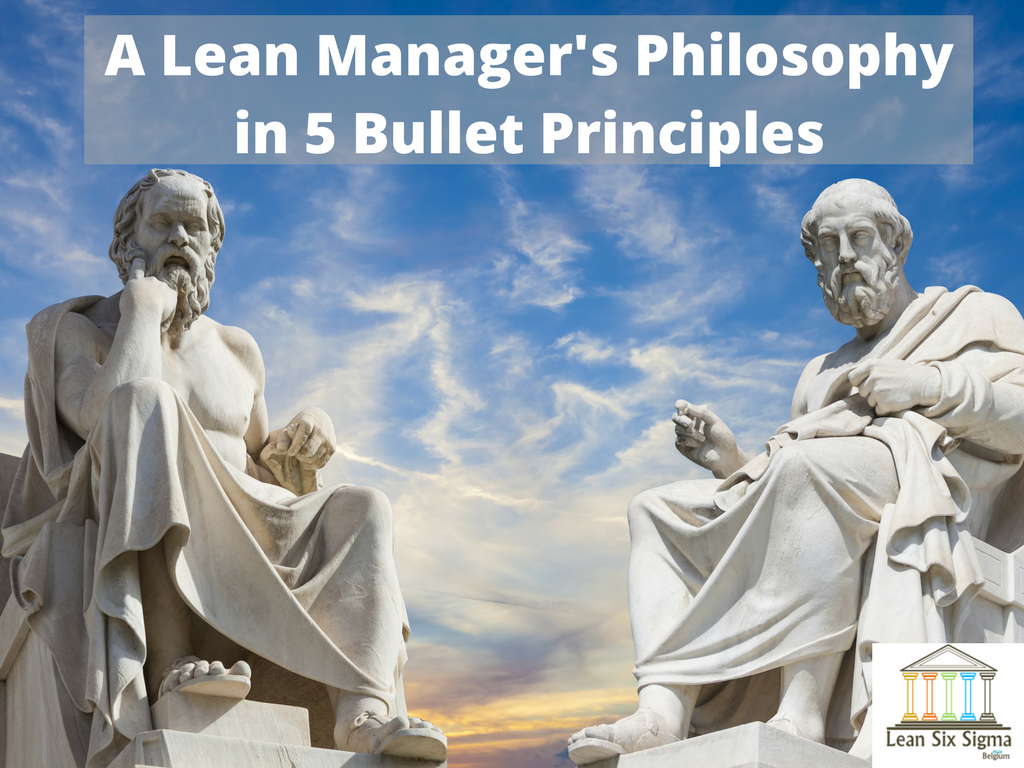Practice the philosophy of continuous improvement. Get a little bit better every day. – Author Unknown
The Lean manager’s philosophy does not directly consist in creating added value for the client. It consists rather in ensuring that the conditions for the employees, who directly contribute to the creation of added value for the client, are optimal. To pursue this objective, most actions of a Lean Manager will be driven by 5 principles : Challenge, Respect, Kaizen, Gemba and Teamwork. What do these concepts mean?
1. Challenge
The Lean Manager will share with his employees a long-term vision and he will put forward the different challenges at stake in the enterprise. In this way, the manager shows with consistency and coherency the right direction towards which progress has to be achieved so that each one in the team knows the meaning beyond every action.
2. Respect
A Lean Manager will develop as much as possible the creative skills of his employees by applying, on a daily basis, several rules of respect. This entails : promoting mutual trust and transparency between all stakeholders (partners, clients, colleagues, providers…); listening to the field employees who are best suited to improve their own job; sharing clear rules of game to employees.
In this way, they are able to make informed choices because they clearly know the criteria of success in the actual context and environment. Thanks to these general rules of respect, every employee will be granted a space to grow inside the company and to get the best of himself in a positive and motivated mood.
3. Kaizen (improvement)
In Lean philosophy, problem-solving through a continuous learning process is one of the main tools to encourage personal development and ready-to-change attitude. The manager’s role is therefore not to bring solutions but to coach his staff in order to make them autonomous problem solvers.
Every employee is encouraged to identify, visualize and solve issues on a day-to-day basis and to rigorously verify the effects of the countermeasures. In this way, every employee is given the chance to be listened to by his hierarchy and to go beyond the pure execution of his mission.
4. Gemba (field)
In a Lean philosophy, practical field experience has always to be prioritized on theory, developed in an office or a meeting room, because “gemba” is the place where added value is created and where problems are observed in real time. Lean developed various techniques to facilitate field observation, one of which is called Visual Management. This tool aims at making visible all deviations from the norm, or all issues, in order to allow immediate reactions.
Field observation allows the manager to detect real facts on real places and to solve problems where they occur. According to the spirit of Lean culture, visual management is intended to support field employees, who are directly creating added value for the client. It is not conceived as a tool at the service of the management to be imposed in a top down approach. The Lean manager’s role is to learn to “read”, to interpret and to make a good use of the visual elements built by and for his teams.
5. Team Work
The team is the pivot of the Lean approach and teamwork is aimed at encouraging personal development in order to maximize collective performance. In this context, the manager’s role is to consolidate and animate, through his leadership, a group of individuals with different backgrounds and skills around a common objective. In order that the whole represent more than the sum of the persons, the manager encourages every individual to learn and improve. Here it is no question of developing a common competence but instead of helping everyone in his capability to solve problems in teams.
Purpose? The team will benefit of a good level of autonomy and will enjoy to work with a comfortable leeway. Furthermore, everyone in the team will feel more responsible and personally involved in the mission success. With this in mind, all issues or problems are considered as a normal situation with deviances that allow to continuously learn and improve, and not as a fault or mistake that has to be punished.








